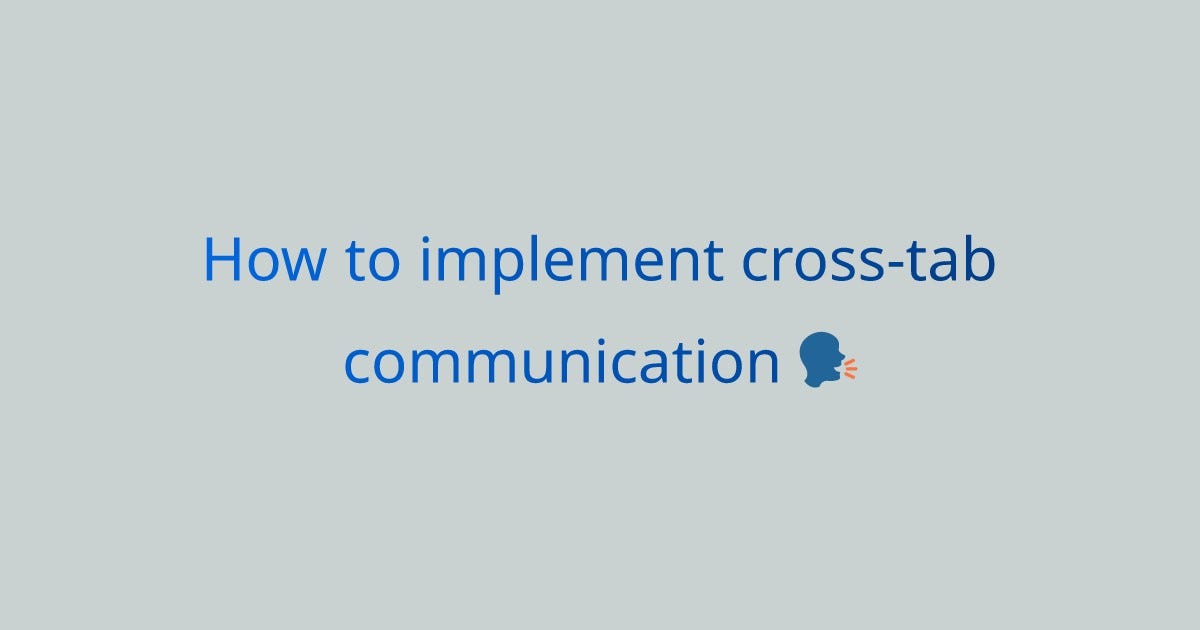How Can Commercial Auto Insurance Protect My Business Assets?
In this article, we will explore the various aspects of commercial auto insurance and how it can protect your business assets.

Businesses that rely on vehicles for their operations, such as transportation companies, delivery services, or contractors, understand the importance of protecting their assets on the road. Commercial auto insurance provides essential coverage that safeguards businesses from financial losses resulting from accidents, theft, or other incidents involving company vehicles.
Commercial auto insurance is a specialized form of insurance designed to cover vehicles used for business purposes. It offers protection for vehicles owned or leased by a business, including cars, trucks, vans, SUVs, and even entire fleets. Commercial auto insurance provides coverage for physical damage to vehicles, liability for third-party injuries or property damage, medical expenses, legal expenses, and other potential risks associated with operating business vehicles.
Understanding the Importance of Commercial Auto Insurance
Having proper commercial auto insurance is vital for businesses that rely on vehicles to carry out their daily operations. Without adequate coverage, a business can be exposed to significant financial risks in the event of accidents, theft, or other incidents. Commercial auto insurance offers peace of mind and protects a business's assets, ensuring that any unforeseen circumstances on the road don't disrupt the smooth functioning of the business or drain its financial resources.
Types of Vehicles Covered by Commercial Auto Insurance
Commercial auto insurance covers a wide range of vehicles used for business purposes. Whether you have a single vehicle or a whole fleet, there are coverage options available to suit your needs.
Cars and Trucks
Commercial auto insurance covers cars and trucks used for business purposes, including pickups, vans, and utility vehicles. Whether you use these vehicles for transporting goods, making deliveries, or visiting clients, commercial auto insurance provides the necessary protection in case of accidents or damage.
Vans and SUVs
Vans and SUVs are common vehicles used by businesses for various purposes such as transporting goods, carrying equipment, or providing services. auto commercial insurance ensures that these vehicles are protected from risks such as collisions, theft, or damage caused by natural disasters.
Commercial Fleets
For businesses that operate multiple vehicles, commercial fleet insurance is available to provide comprehensive coverage. Fleet insurance simplifies the management of insurance policies by consolidating coverage for all vehicles under a single policy. This not only saves time but also provides cost savings for businesses with larger fleets.
Coverage Options in Commercial Auto Insurance
Commercial auto insurance offers several coverage options to meet the specific needs of businesses. Understanding these options is crucial in selecting the right coverage for your vehicles.
Liability Coverage
Liability coverage is a fundamental component of commercial auto insurance. It protects businesses from financial losses if their vehicles cause bodily injury or property damage to others. This coverage includes legal defense costs if the business is sued as a result of an accident.
Physical Damage Coverage
Physical damage coverage protects against damage to your vehicles caused by accidents, collisions, or other covered events. It includes two types of coverage:
- Comprehensive Coverage: This covers damages caused by events other than collisions, such as theft, vandalism, fire, or natural disasters.
- Collision Coverage: This covers damages caused by collisions with other vehicles or objects.
Uninsured/Underinsured Motorist Coverage
Uninsured/underinsured motorist coverage provides protection when your business vehicle is involved in an accident with a driver who doesn't have commercial vehicle insurance or whose insurance is insufficient to cover the damages. This coverage helps ensure that your business is not financially burdened due to the negligence of uninsured or underinsured drivers.
Medical Payments Coverage
Medical payments coverage, also known as MedPay, covers medical expenses for you and your passengers if you're injured in an accident. Regardless of who is at fault, this coverage helps pay for necessary medical treatment, hospitalization, or rehabilitation.
Personal Injury Protection
Personal injury protection (PIP) coverage is similar to medical payments coverage but goes beyond medical expenses. It may also cover lost wages, funeral expenses, and other related costs resulting from an accident, regardless of fault.
Comprehensive Coverage
Comprehensive coverage protects your vehicles against non-collision-related damages, such as theft, vandalism, natural disasters, or falling objects. This coverage is particularly important for businesses operating in areas prone to theft or severe weather conditions.
Collision Coverage
Collision coverage specifically covers damages caused by collisions with other vehicles or objects, regardless of fault. If your business vehicle is involved in an accident, collision coverage helps cover the cost of repairs or replacement.
Non-Owned Auto Coverage
Non-owned auto coverage provides liability protection when your employees use their personal vehicles for business purposes. It ensures that your business is protected if an accident occurs while an employee is using their personal vehicle for work-related tasks.
Hired Auto Coverage
Hired auto coverage protects your business when you rent or lease vehicles for business purposes. It provides liability coverage for damages or injuries caused by these rented vehicles.
Factors Affecting Commercial Auto Insurance Premiums
Several factors influence the premiums of commercial car insurance. Insurance companies consider these factors when determining the cost of coverage for your business vehicles. Understanding these factors can help you manage your insurance costs effectively.
Driving Records
The driving records of your employees who will be operating the business vehicles play a significant role in determining insurance premiums. A clean driving record with no accidents or traffic violations demonstrates responsible driving behavior and lowers the risk for insurance companies. On the other hand, a history of accidents or traffic violations may lead to higher premiums due to the increased risk associated with such drivers.
Vehicle Type and Use
The type of vehicles you use for your business and their intended purpose also impact insurance premiums. Vehicles with higher values or those used for specialized purposes may be more expensive to insure. Additionally, the frequency and distance of vehicle use can affect premiums, as vehicles used for long-haul transportation may face higher risks compared to those used for local deliveries.
Location and Routes
The location where your business operates and the routes your vehicles typically take can influence insurance premiums. Areas with higher traffic congestion or a history of accidents may result in higher premiums. Similarly, routes that involve more hazardous conditions, such as mountainous terrains or areas prone to severe weather, can also affect insurance costs.
Claims History
Your business's claims history plays a significant role in determining insurance premiums. Insurance companies consider the frequency and severity of past claims when assessing the risk associated with insuring your business vehicles. A higher number of claims or costly claims may result in higher premiums, as it indicates a higher likelihood of future claims.
Deductibles and Coverage Limits
The deductibles and coverage limits you choose for your commercial auto insurance policy can impact premiums. A higher deductible, which is the amount you must pay out of pocket before insurance coverage kicks in, can lead to lower premiums. However, it's essential to ensure that the deductible is still affordable for your business in case of a claim. Similarly, higher coverage limits, which provide greater financial protection, may result in higher premiums.
How Commercial Auto Insurance Protects Business Assets
Commercial auto insurance provides essential protection for your business assets in various ways. Understanding these aspects can help you recognize the value of having adequate coverage for your vehicles.
Vehicle Damage and Repairs
Accidents can cause significant damage to your business vehicles. Commercial auto insurance covers the cost of repairs or replacement of vehicles damaged in accidents, ensuring that your business assets are restored quickly. This allows your business operations to continue smoothly without a prolonged interruption due to vehicle damage.
Liability for Accidents
In the event that your business vehicle is involved in an accident where you or your employee is at fault, commercial auto insurance protects your business from liability. It covers the costs associated with bodily injury or property damage caused to third parties, including medical expenses, legal fees, and settlements or judgments.
Legal Expenses and Lawsuits
If your business faces a lawsuit related to an accident involving your commercial vehicles, the legal expenses can be substantial. Commercial auto insurance provides coverage for legal defense costs, ensuring that your business is financially protected in such situations. It can help cover attorney fees, court costs, and any settlements or judgments that may arise from the lawsuit.
Medical Expenses
Accidents involving your business vehicles can result in injuries to you, your employees, or other parties involved. Commercial auto insurance includes coverage for medical expenses, ensuring that necessary medical treatment, hospitalization, or rehabilitation costs are taken care of. This helps alleviate the financial burden on your business and allows individuals to receive proper medical care.
Theft and Vandalism
Commercial auto insurance also protects your business vehicles from theft or vandalism. If your vehicle is stolen or damaged due to acts of vandalism, your insurance coverage can help cover the costs of replacement or repairs. This safeguard ensures that your business assets are protected even in situations beyond accidents on the road.
Business Interruption Coverage
In the unfortunate event that your business vehicles are rendered inoperable due to an accident or damage, commercial auto insurance can provide coverage for business interruption. This coverage helps compensate for the loss of income or additional expenses incurred while your vehicles are out of commission. It ensures that your business can continue operating or quickly resume its operations without significant financial setbacks.
Additional Benefits and Riders
In addition to the standard coverage options, commercial auto insurance offers additional benefits and riders that can further enhance your protection. These optional coverages can be customized to meet the specific needs of your business.
Rental Reimbursement
Rental reimbursement coverage provides reimbursement for the cost of renting a replacement vehicle while your business vehicle is being repaired or replaced. This coverage helps minimize disruptions to your business operations and ensures that you have a temporary vehicle to continue serving your clients or customers.
Towing and Roadside Assistance
Towing and roadside assistance coverage offers peace of mind when unexpected breakdowns or roadside emergencies occur. Whether it's a flat tire, dead battery, or mechanical failure, this coverage provides assistance and covers the costs associated with towing, jump-starts, tire changes, and other roadside services.
Equipment Coverage
If your business vehicles are equipped with specialized equipment or tools essential for your operations, equipment coverage can protect these valuable assets. It provides coverage for the repair, replacement, or theft of equipment and ensures that your business can continue operating efficiently.
Trailer Interchange Coverage
For businesses that frequently interchange trailers with other parties, trailer interchange coverage is crucial. It provides coverage for physical damage to non-owned trailers while under your care, custody, or control. This coverage safeguards your business from potential liability and financial loss arising from damage or loss of these trailers.
Tips for Finding the Right Commercial Auto Insurance
Finding the right commercial auto insurance policy for your business requires careful consideration. Here are some essential tips to help you navigate the process effectively:
Evaluate Coverage Needs: Assess your business's specific risks and coverage requirements. Consider factors such as the types of vehicles you own, the nature of your operations, and the level of protection needed for your assets.
Shop Around for Quotes: Obtain quotes from multiple insurance providers to compare coverage options and pricing. This allows you to find the best value for your insurance premium while ensuring adequate coverage.
Review Policy Terms and Conditions: Carefully review the terms, conditions, and exclusions of the policies you are considering. Understand the coverage limits, deductibles, and any additional endorsements or riders included in the policy.
Consider Financial Stability and Reputation of Insurers: Choose an insurance company with a strong financial standing and a reputation for excellent customer service. Research customer reviews and ratings to ensure you're selecting a reliable insurer.
Seek Professional Advice: Consult with an insurance agent or broker who specializes in commercial auto insurance. They can provide expert guidance tailored to your business's needs and help you navigate the complexities of the insurance market.
Commercial auto insurance is an essential investment for businesses that rely on vehicles for their operations. It provides protection for your business assets, including vehicles, equipment, and financial well-being. By understanding the coverage options, factors affecting premiums, and additional benefits, you can make informed decisions to ensure your business is adequately protected on the road.
What's Your Reaction?





















